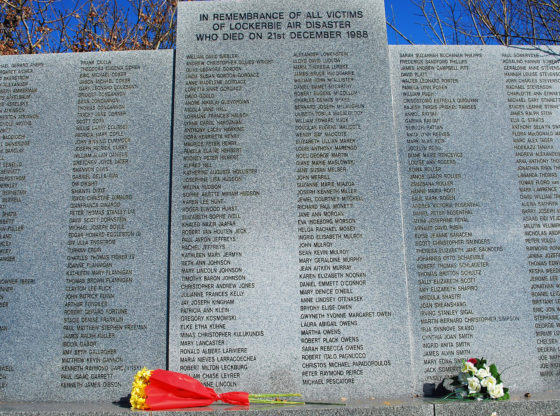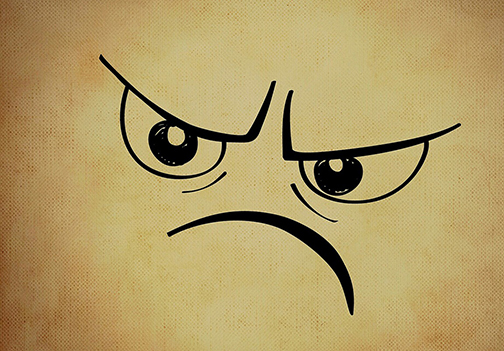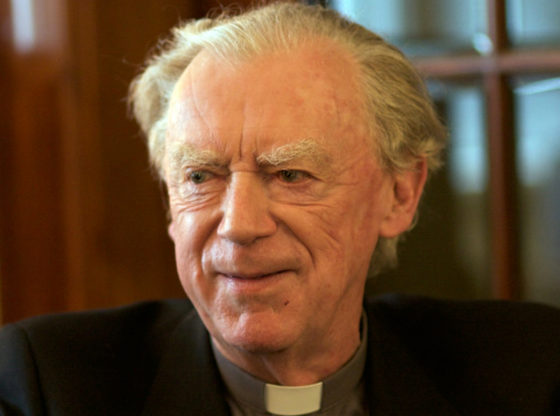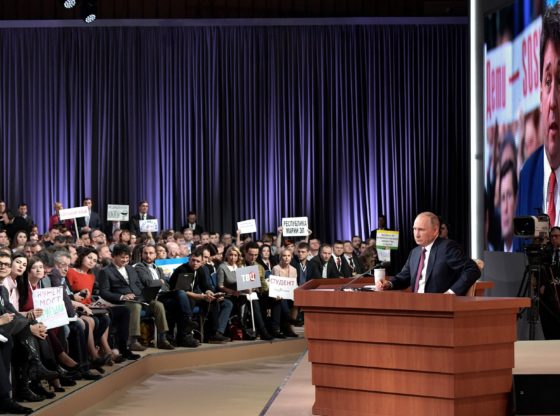Qatar has been able to resist Saudi Arabia’s diplomatic efforts against it thanks to a series of long-term factors. In this article, Alejandro Salamanca analyses the internal and external strategies of the small emirate. A diversified economy, and a carefully knitted network of defence partners, as well as a positive public image, have made Qatar a resilient country with a high degree of soft power.
In the summer of 2017, Saudi Arabia accused Qatar of supporting terrorism, initiating a diplomatic crisis that continues still. Saudi Arabia is supported by the United Arab Emirates, Bahrain, and Egypt. They all withdrew their ambassadors, asked their citizens to leave Qatar, and blocked all land, sea, and air links with the country. So far, the small emirate has successfully managed to avert serious consequences as a result of this.
Indeed, there are some key long-term factors that explain why Saudi Arabia’s efforts to destabilise Qatar have been almost in vain. In this article, we will highlight some of them: Qatar’s internal stability; its strong economy; its defence agreements; its image as a prosperous and advanced country; and its mediating diplomacy. Taken together, these factors contribute greatly to Qatar’s success.
INTERNAL SECURITY
Qatar has been under the control of the al-Thani dynasty for more than a century. Transitions of power are usually abdications or bloodless intra-familiar coups. Even though, since 2003, Qatar has officially been a constitutional monarchy, the royal family is still in firm control of the country’s affairs. The parliament, with 45 seats, only has advisory powers, and the king appoints a third of its members. The general elections, which were supposed to be held in 2013, have been postponed several times, and are currently scheduled for 2019. Local elections, on the other hand, have been carried out effectively, several times.
Despite this lack of democracy, there is not much dissent in Qatar, apart from within some conservative and religious circles which oppose collaboration with the Western powers. The legitimacy of the ruling family is not usually challenged. Most nationals seem content with the regime, since they are tax-exempt and enjoy multiple public services (in that sense, Qatar is the perfect example of a Rentier State which co-opts its subjects/citizens through goods, jobs and services). Those who are concerned about the status quo, and are trying to influence the country’s affairs, are trying to do through foundations and non-governmental organisations like the Qatar Foundation, rather than embarking in politics.
The general elections, which were supposed to be held in 2013, have been postponed several times, and are currently scheduled for 2019.
Even though Qatar has a minority of Shiites (around 20 percent of the nationals), there are no sectarian conflicts as there are in its neighbouring state, Bahrain. As a matter of fact, Qatar is more tolerant of other religions than its neighbours. The first Catholic church opened its gates in Qatar in 2008, and Hindus and Baha’is are also allowed to have their temples. Wahhabism is the predominant interpretation of Islam in Qatar, but its rulers are more pragmatic than those of Saudi Arabia and allow more freedom, perhaps for the sake of the country’s image and reputation.
All these elements (continuity of the ruling family, rudimentary democratic institutions, a largely unchallenging civil society, and tolerance of religious minorities) are contributing to Qatar’s stability in an otherwise troubled region. Unlike in Bahrain, the 2011 ‘Arab Spring’ did not spread to the peninsula, and the regime will probably not face significant challenges to its authority in the mid-term.
A STRONG AND DIVERSIFIED ECONOMY
Qatar has the highest GDP per capita in the world. It is a typical rentier state whose prosperity is due to its natural resources. It is the first exporter in the world of liquefied natural gas, it has the third biggest reserves of natural gas, and the fourteenth greatest reserves of oil. Qatar delivers gas to great powers such as China, UK, Japan, and India, which are guarantors of its security. The al-Thani have been wise enough to secure long-term contracts for their exports, which are not subject to the global fluctuations of crude and gas prices, an additional factor to explain Qatar’s economic success. As other countries in the GCC, Qatar has tried to diversify its economy and lessen its dependence on natural resources. It has ended state-monopoly and has opened itself to foreign investments, trying to develop a service-based economy.
At the same time, the al-Thani have invested in western banks (Santander, Credit Suisse), supermarkets (Sainsbury’s), and film studios (Miramax), as well as football teams (Paris St. Germain). They have created an efficient network of investments and mutual interests with various countries and companies in the world which, again, is aimed at securing Qatar’s stability in the long-term. The international multimedia network Al Jazeera is another of Qatar’s main assets, not only economically but also symbolically.

Nowadays, natural resource exports represent less than half of Qatar’s income. Tourism, banking, and other tertiary sector activities are becoming more important. The country receives around three million tourists every year, though most of them are short-term visitors who attend business conferences and similar events. Doha has become a popular place to host meetings and exhibitions, and the government has promoted that image by being host to numerous foundations and organisations, such as the International Centre for Sport Security.
The authorities of the country expect that the 2022 football World Cup will help to promote Qatar as a long-stay luxury destination in the Middle East, a market that currently is dominated by the UAE. Sport has become one of the pillars of the country’s development project, with the high-performance training centre Aspire Zone (where elite athletes and teams like Rafael Nadal, Manchester United, and Bayern München have stayed) as its main cornerstone.
However, the World Cup has also damaged the reputation of Qatar since it has illuminated the harsh conditions of migrant workers employed in its construction sector. Migrants make up 80 percent of Qatar’s population and supply most of the workforce for the private sector. The social status of the migrants is determined by their place of origin and occupation: Western skilled workers are better paid and regarded than unskilled construction workers from India.
Regardless of their origin and social strata, migrant workers in Qatar are highly dependent on their employer or sponsor, who must authorise them to switch jobs if they wish to do so before their contract ends. Moreover, workers have to obtain an exit permit from their employer before they can leave the country. That makes them vulnerable to the will of their sponsor, as Human Rights Watch has pointed out.
The public image of Qatar has undoubtedly suffered from international exposure of the experiences suffered by foreign workers. Yet this is not an issue which is likely to damage it too badly, or discourage visitors.
Starting in 2013, The Guardian has run a series of stories denouncing the mistreatment and exploitative conditions in which Nepalese workers were living, and the alarming death toll they have experienced whilst working. Other media outlets, including the BBC, echoed the complaints, and NGOs such as Amnesty have published special reports on the matter. This scrutiny prompted Qatar to pass the new laws on guest workers. However, this has not assuaged the concerns or expectations of many human rights organisations, and Qatar’s labour policies continue to receive criticism.
The public image of Qatar has undoubtedly suffered from international exposure of the experiences suffered by foreign workers. Yet this is not an issue which is likely to damage it too badly, or discourage visitors. Governments and private companies are still doing business with Qatar and this will not change.
DEFENCE AND SECURITY
For the last two centuries, the rulers of Qatar have sought patrons and allies in order to protect themselves against their powerful neighbours. This approach has allowed them to balance between rival powers, and change sides when it was convenient. In the past, they pursued this strategy between Bahrain and the British, and later between the Saudis and the Ottomans.

In the 1990s, the Second Gulf War brought to light the weakness of Qatar’s former protector, Saudi Arabia, which needed the assistance of Qatar to reject an Iraqi incursion into a town near the border. In 1992, Qatar signed the Defence Cooperation Agreement with the United States. When Hamad al-Thani took power, he strengthened the bonds with the Americans, and built the base of Al-Udeid, where the US Air Force settled in the year 2000. Just three years later, due to local unrest in Saudi Arabia, the US Combat Air Operations Centre moved to Qatar.
However, Qatar has not relied uniquely on the US for its protection. It has also reached defence agreements with France, the UK, India and, recently, Turkey. This deliberate effort to diversify military assistance has cemented its relations with foreign powers and greatly reinforced the independence of Qatar, which has felt free to follow an independent foreign policy.
PUBLIC RELATIONS SUCCESS
Qatar has a wide range of channels to exercise its soft power. The most important one is Al Jazeera, an ever-expanding international media network that broadcasts in Arabic, English, Turkish, and Serbo-Croatian. The company was established in 1996 by the royal family, who still fund it (advertising revenues are not enough to cover annual running costs). Al Jazeera tries to present itself as a neutral and objective media outlet. Regarding Middle Eastern and South Asian issues, it gives voice to secular and Islamist politicians, as well as American officials. It is one of the most popular news networks in Arabic, and a valuable instrument for Qatar’s foreign policy.
Charity has been an additional way of bettering the reputation of the country. The state of Qatar helped reconstruct southern Lebanon after Israel’s offensive in 2006. It also helped Hamas in Gaza after 2008. But perhaps the most important charitable contribution of the al-Thani was the setting up of the Katrina Fund, a move which made Qatar the second largest foreign donor to the victims of the hurricane that destroyed New Orleans in 2005.
Perhaps the most important charitable contribution of the al-Thani was the setting up of the Katrina Fund, a move which made Qatar the second largest foreign donor to the victims of the hurricane that destroyed New Orleans in 2005.
Another of Qatar’s public image boosters is the Qatar Foundation. This educational organisation was established in 1995 by royal decree, with the stated aim of leading the country from an oil-based to a knowledge-based economy. The foundation set up schools, educational, and artistic programs, and it has contributed to make Qatar one of the academic centres of the Arabian Peninsula.
Finally, Qatar has hosted many international gatherings, including Islamic conferences, arts and culture festivals, and sporting events. The football World Cup of 2022 is the last step in a carefully-planned strategy that started with the organisation of the Asian Games in 2006. Through this prestigious football tournament, the Qatari authorities expect to improve the image of the country and improve their relation with developing countries. Given that the population of Qatar does not have a particular interest in football, the government is building the stadiums with a modular system, and plans to gift them to developing countries once the tournament is over.
DIPLOMATIC SOFT POWER
In the international arena, Qatar has a disproportionate influence for a country of its size. This is due to its economic buoyancy, but also thanks to successful diplomacy. Like many small countries, Qatar is keen on multilateral organisations where each state gets one vote. It is a member of 35 such organisations, including the G-77 and of course the GCC.
Until 2013, Qatar followed a ‘soft’ foreign policy of mediation, cultivating relationships with most of the regional and global actors. This boosted its international image, making it possible to secure the support of Israel for its temporary membership in the Security Council of the United Nations in 2005, while still maintaining cordial relations with Iran. Qatar has mediated in various conflicts, such as Yemen (2007), Lebanon (2008) and Darfur (2009), successfully in the two latter cases. The Qataris are not necessarily experienced and skillful negotiators, but they often use their economic resources to buy compromises between contending parties.
However, since 2011, the foreign policy of Qatar has shifted from neutrality and mediation to one which is more interventionist in nature. A report by the Al Jazeera Center for Studies (which may be regarded as the official think-tank of the Qatari regime), states that Qatar has moved from ‘soft power’ to ‘smart power’, ‘from the diplomacy of mediation to the diplomacy of influence’. This has seen Qatar promoting dialogue with the Muslim Brotherhood because, even though they are outlawed in many Arab countries, they are still an influential actor in the region’s politics.
Even though Qatar’s support of political Islam is, according to the state’s officials, pragmatic rather than ideological, only time will tell whether their bet will pay dividends, or become a dangerous threat to the regime’s legitimacy.
Qatar’s support of activist Salafi networks and proxies of the Muslim Brotherhood has become more prominent in recent years, a development which has raised serious concerns in the West. Qatar has hosted Afghan Taliban representatives, the only country which has done so. In Syria, Qatar has backed jihadist groups like Ahrar al-Sham, as well as other military factions. The Qatar authorities have also turned a blind eye to private donations to the al-Nusra front, al-Qaeda’s associate in Syria (nowadays re-branded as Jabhat Fateh al-Sham).
Even though Qatar’s support of political Islam is, according to the state’s officials, pragmatic rather than ideological, only time will tell whether their bet will pay dividends, or become a dangerous threat to the regime’s legitimacy. Many salafists and political islamists don’t recognise monarchies as legitimate governments. Also, the issue of who Qatar has been supporting has been one of the main causes of Saudi Arabia’s actions against Qatar.
A SMART PLAYER?
Saudi leaders and their allies may have work to do in designing a more efficient strategy against Qatar. The closure of the border with Saudi Arabia and the restrictions in air traffic surely affect Qatar, but its sources of power remain largely unaltered.
Qatar is a strong international actor - but it certainly isn’t free of problems. Its population suffers from obesity and diabetes. The quality of the air in Doha has reached worrying levels. Migrant workers, who make up more than 80 percent of the inhabitants of the peninsula, suffer degrading living and working conditions and relatively high death rates. The local press is sometimes censored and journalists usually restrain themselves to avoid trouble. There are serious accusations of corruption regarding the World Cup nomination bid. Qatar’s policy towards homosexuals has been the object of many criticisms.
However, these elements don’t affect Qatar’s stability. And the reputational damage they cause is, regrettably, minimal. The emirate is still perceived as a reliable international partner by many international actors, and an attractive place to go to.
Qatar’s successful economy and stable internal politics do much to halt the destabilising efforts of Arabia Saudi and the UAE whose restrictions and sanctions have only a limited effect. Doha’s defence agreements reinforce the power of the al-Thani and make military interventions against Qatar by its Gulf opponents highly unlikely. However, the ambitious turn in Qatar’s diplomatic strategy since 2011 may prove unwise. Its support of islamist actors may well irk - or even alienate - its western partners and jeopardise those important defence agreements. This move may also endanger the carefully constructed public image of Qatar as a moderate, peaceful, and mediating country.
Yet, all in all, Qatar’s leaders seem to understand the power dynamics of the Middle East very well. As Marc Dufour put it:
“Qatari history showed that nothing is permanent in the region, that friends of yesterday might be the enemies of tomorrow, that great Empires arrive, settle, provide security and eventually decay and die. It taught two main lessons to Qatari leaders: a small regional system with protection of neighbors was unstable; and Empires can offer protection, but only for a limited time.”
Nowadays, Qatar has secured an alliance with Turkey and has established strong relations with Iran, with which it shares part of its underwater gas deposits. These two powerful regional allies will help to keep Saudi Arabia at bay. The efforts to diversify Qatar’s economy will make it less vulnerable to fluctuations in the price of oil, while its commercial links with global actors will prevent any economic sanctions imposed by Saudi Arabia and the UAE from having serious consequences. Meanwhile, Qatar will keep pushing its football diplomacy with the hope of improving its damaged public image on this front.
Alejandro Salamanca Rodríguez is a postgraduate student in the European Master in Migration and Intercultural Relations at the universities of Oldenburg and Stavanger. He has been awarded with an Erasmus Plus scholarship. Alejandro has a Masters in Islamic and Middle Eastern Studies from the University of Edinburgh. He can be found at Academia.edu and Twitter.
Feature image: Dhows in front of the West Bay skyline, Doha. Image: StellarD [CC BY-SA 4.0]











